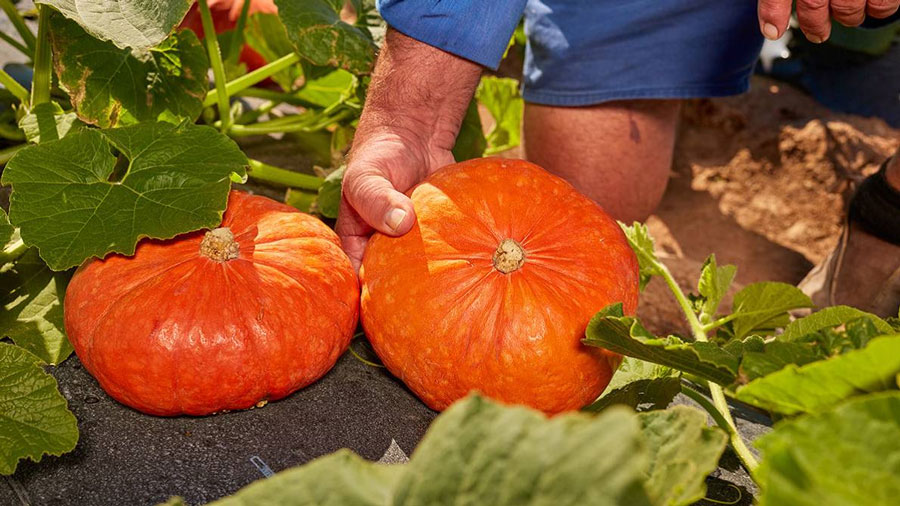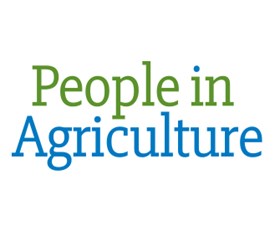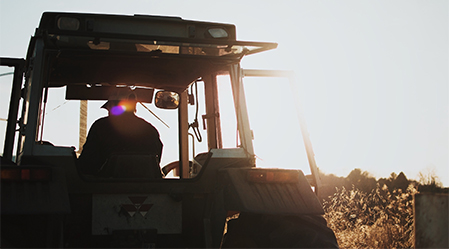Rocky Ponds Produce highlights Agricultural Innovation, Automation and Expansion
19/10/2017
Gumlu, Queensland is a region in Australia that boasts the most extended growing season for horticulture. The 750ha Rocky Ponds Produce property owned by Des and Paula Chapman can produce a million cartons a year in capsicum, melon and pumpkin varieties.
Gumlu, Queensland is a region in Australia that boasts the most extended growing season for horticulture. The 750ha Rocky Ponds Produce property owned by Des and Paula Chapman can produce a million cartons a year in capsicum, melon and pumpkin varieties.According to Des, due to their geographical location in the dry tropics, they harvest 32 weeks a year. They start around April 20 and finish in the first week of December. The temperature range from 12-28C in winter and 24-22C in summer having an average annual rain of 660mm.
The Chapmans have been farming in Gumlu for 38 years and have the most idyllic farm operation in Australia. They modernised the farming operation from working the land to packing the fruit to the point that it can be mainly run remotely.
Among the four children of the couple, Evan has been helping with improvements of the farm. The modernisation of the agriculture includes their most significant addition, new state-of-the-art nursery, that comprises computerised irrigation and fertigation system. It will boost the production by at least 20 percent, growing about 16 million plants annually. The added technology was partly funded with $400,000 from the Coles Nurture Fund grant – who they have been supplying for 25 years.
The Canadian Cravo design will address the issue with the changing weather. It has automated shade for hot days, insulation against cold, solar-powered retractable roof, and lighting to help seedlings grow faster.
According to Des, the nursery was built mainly for seedlings, but he hoped to improve it with techniques similar to hydroponics wherein it will develop an area entirely to grow crops.
He said that with that venture, it would require more testing. Since that industry is expensive, he wanted to make sure that everything is right before committing. This investment will also address areas that are exposed to extremes conditions.
The Chapman’s aim for efficiency is a critical part of their formula for a successful business. A decade ago, they introduced laser steering so that no land is wasted. With the availability of 40ha on-farm dam water for irrigation and underground water, they have automated tube irrigation valves and water pressure.
To reduce the power bills by 24 percent, all the motors across the farm have variable speed drives so that when not in use, they can set the machine to power save mode.
The 2200 square metre on-farm packing shed was fully automated nearly four years ago with a dual lane that can scan 30 capsicums per second (weighing, sizing, picking the colour and finding defects), whereas the melon/pumpkin line can scan seven pieces per second.
The Chapmans are always looking for new and different produce. One distinct example is that this year, they released Kabocha pumpkin for a two-year trial, selling through Coles. They discovered the Kabocha when they are travelling in Europe and found it delicious, deciding to bring the product to Australia.
For over two decades and a half, the Chapmans have used the old-tech nursery that produces an annual supply of seven million seedlings with an additional two million from local nurseries.
According to them, they a have high, but short harvest period. For instance, one capsicum plant will be harvested three times before it is slashed and replaced.
The Paula and Des did not have a farming background when they bought their property 38 years ago. They learnt from trial and error and demands and ended up specialising in pumpkin, melons and capsicum.
They have been exporting for nearly 30 years. They ship 20 percent of produce to New Zealand, Asia and the Middle East. They said that the main reason they’ve expanded is due to Coles, which is their major customer in Australia





